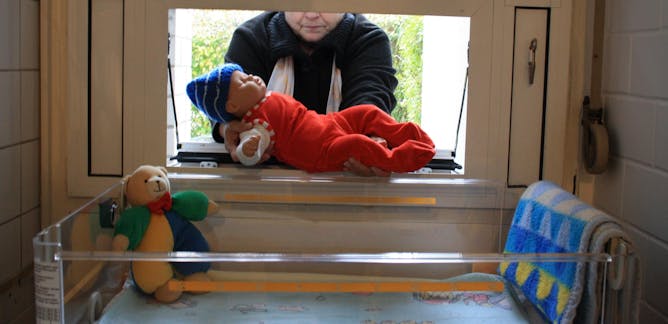|
For more than a year, Maite Taboada and Fatemeh Torabi Asr of Simon Fraser University have been working with Informed Opinions — a charity dedicated to getting more women’s perspectives into the public discourse — on an interesting project called the Gender Gap Tracker.
Using computational linguistics, the Gender Gap Tracker analyzes how Canadian media represent women’s voices. It measures the ratio of female to male sources quoted in online news coverage by seven national news organizations — CBC, CTV, Global, Huffington Post, the National Post, the Globe and Mail and the Toronto Star. (We published a story by Maite and Fatemeh about the Gender Gap Tracker when it was launched.) If you check the tracker this morning, it will show you that in aggregate over the last few months, these news outlets quoted female sources only 28 per cent of the time.
Stories from The Conversation are not monitored by the Gender Gap Tracker, but we do our own internal tracking of the breakdown of our authors. In 2019, our French and English sites published 772 articles by male authors and 752 articles by females — a ratio of 51 per cent to 49 per cent.
Having so many female academics, scholars and researchers as our authors is another way to bring different perspectives into the public discourse. As we all get ready to celebrate International Women's Day on Sunday, I've assembled some stories from the global network of The Conversation that focus on important issues about women in the workplace, in science, education and the arts.
Have a great weekend and we'll be back in your Inbox on Monday.
|
International Women's Day Reads
|

Isabel Fernandez-Mateo, London Business School; Sarah Kaplan, University of Toronto
At a time when corporations are struggling to address gender gaps at all levels, killing off stereotyped myths such as the Queen Bee Syndrome is essential.
| |

Barbara Jayne Orser, L’Université d’Ottawa/University of Ottawa
Women-focused capital financing is supposedly aimed at ending the corporate gender gap. But many equity investors still view women entrepreneurs as being deficient and are practising pinkwashing.
|

Pierre Chaigneau, Queen's University, Ontario
As CEOs, women have it tougher than men. Their severance deals prove it.
| |

Hannah Thomasy, University of Toronto
The rise in female researchers has expanded our knowledge of female biology in human and nonhuman animals.
|

John Bergeron, McGill University
Maude Abbott's discoveries on pediatric heart defects were groundbreaking, saved countless lives and have stood the test of time for more than 80 years. It's time she received her due credit.
| |

Alana Cattapan, University of Waterloo
Since an infant was found in a recycling bin last fall in Saskatoon, advocates have renewed their campaign for baby hatches, places mothers can leave newborns safely and anonymously.
|

Jennifer Saul, University of Waterloo
TERF is not a slur. Instead, we should use words that accurately describe how some feminists are actually anti-trans activists.
| |

Stacy Gillis, Newcastle University
Escape the romance trap with these heroines.
|

Armand D'Angour, University of Oxford
A new look at ancient texts allows for a pivotal perspective on the role of a certain Greek woman.
| |

Shannon D. M. Moore, University of Manitoba; Melanie D. Janzen, University of Manitoba
Neoliberal governments are getting away with cutting public funding to education — by framing education as women's work that needs a strong managerial hand.
|
|
|